 W
WD. P. Agrawal is a historian of Indian science and technology, archaeologist, and author. He has published works on Indian archaeology, metallurgy, the history of science, and palaeoclimate.
 W
WAyinapalli Aiyappan was a museologist who served as Superintendent of the Government Museum, Madras from 1940 to 1960. He was the first Indian to occupy the post. Aiyappan was also an amateur archaeologist who did pioneering excavations on the archaeological site at Arikamedu.
 W
WArjun Appadurai is an Indian-American anthropologist recognized as a major theorist in globalization studies. In his anthropological work, he discusses the importance of the modernity of nation states and globalization.
 W
WPayal Arora is an Indian anthropologist, full Professor and Chair in Technology, Values, and Global Media Cultures at Erasmus University Rotterdam, author and consultant. She is the founder of CatalystLab, an organization that connects academia, business and the public on social issues. Her work focuses on internet usage in the Global South, specifically on digital cultures, inequality and data governance.
 W
WTista Bagchi, Professor of Linguistics in the University of Delhi, is a distinguished Indian linguist and ethicist. Bagchi trained in Sanskrit College, Kolkata, the University of Delhi, and the University of Chicago, from where she obtained her PhD in Linguistics, her work spans issues of semantics and syntax in languages in general and South Asian languages in particular, questions of ethics in the application of medical technology and social interaction, and translations of iconic texts in Bangla literature and comparative philology. Bagchi has also been active in the area of cognitive sciences with special interests in the relationships amongst sentence structure, computation, linguistic meaning, and human cognition. Bagchi was the Robert F. & Margaret S. Goheen Fellow for the academic year 2001–2002 at the National Humanities Center, Research Triangle Park, North Carolina, and a scientist under the CSIR Mobility Scheme at the National Institute of Science, Technology, and Development Studies, New Delhi, for two years during 2010–2012.
 W
WG.S. Bajpai is an Indian professor of law. He is the incumbent Registrar of the National Law University Delhi since September 2014.
 W
WRajni Bakshi is a Mumbai-based freelance journalist and author. She writes about social and political movements in contemporary India. She was formerly the Gandhi Peace Fellow at Gateway House: Indian Council on Global Relations. Her journalism has appeared in many English and Hindi newspapers and magazines. Bakshi attended school in Kingston, Jamaica, Indraprastha College (Delhi), George Washington University and Rajasthan University (Jaipur).
 W
WSuraj Bhan (1931–2010) was an Indian archaeologist and professor of archaeology. He was part of a panel of academics which contested the Vishva Hindu Parishad's claim that the Babri Masjid was built on top of a Râm temple.
 W
WMahesh Neelkanth Buch was an Indian civil servant and urban planner, considered by many as the architect of modern Bhopal. The Government of India honored him, in 2011, with Padma Bhushan, the third highest civilian award, for his services to the nation.
 W
WMalappurath Raman Chandrasekharan, popularly known as M.R. Chandrasekharan or simply M. R. C., is a Malayalam literary critic and author from Kerala, India. Chandrasekharan has published more than 40 books in different literary sections like literary criticism, translations, politics, social etc. He is also noted for his work in the field of journalism and education. He won the 2010 Kerala Sahitya Akademi Award for Literary Criticism.
 W
WDebiprasad Chattopadhyaya was an Indian Marxist philosopher. He made contributions to the exploration of the materialist current in ancient Indian philosophy. He is known for Lokayata: A Study in Ancient Indian Materialism, which is his exposition of the philosophy of Lokayata. He is also known for work on history of science and scientific method in ancient India, especially his 1977 book Science and Society in Ancient India on the ancient physicians Charaka and Sushruta. He was awarded the Padma Bhushan, India's third highest civilian honour, posthumously, in 1998.
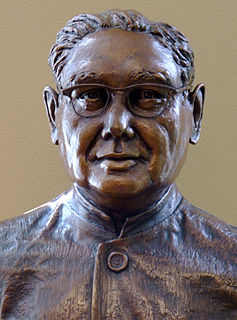 W
WHaridas Chaudhuri, a Bengali integral philosopher, was a correspondent with Sri Aurobindo and the founder of the California Institute of Integral Studies (CIIS).
 W
WPandurangrao Bhimrao Desai (1910–1974) was an Indian epigraphist, historian, and archaeologist.
 W
WZiauddin Abdul Hayy Desai (18 May 1925 – 24 March 2002; was an Indian epigraphist associated with the Archaeological Survey of India. He was also a noted architectural historian and a literary scholar of the Indo-Persianate world as evidenced in his writings.
 W
WLeela Dube was a renowned anthropologist and feminist scholar, fondly called Leeladee by many. She was the widow of anthropologist and sociologist Shyama Charan Dube and a younger sister of the late classical singer Sumati Mutatkar. She is survived by two sons, Mukul Dube and Saurabh Dube. Known for her work on kinship and in women's studies, she wrote several books including Matriliny and Islam: religion and society in the Laccadives and Women and kinship: comparative perspectives on gender in South and South‑east Asia.
 W
WPartha Ghose,, FNASc, is an Indian physicist, author, philosopher, musician and former Professor at the S.N. Bose National Centre for Basic Sciences in Kolkata. He is the former Chairman of Satyajit Ray Film and Television Institute, Kolkata and a member of the Board of Trustees of the Academy of Fine Arts, Kolkata.
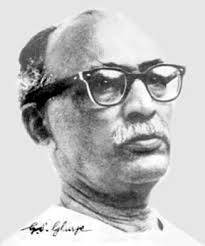 W
WGovind Sadashiv Ghurye was an Indian professor of sociology. In 1924, he became the second person to head the Department of Sociology at the University of Bombay.
 W
WDr. V. Mohini Giri is an Indian Community service worker and activist, who has been Chairperson of the Guild of Service, a New Delhi-based social service organization. Established in 1979, it provides advocacy for women's and children rights for education, employment, and financial security. She founded War Widows Association, New Delhi in 1972. She has also remained Chairperson of the National Commission for Women (1995-1998).
 W
WGita Gopinath is an Indian American economist who has been the Chief Economist of the International Monetary Fund since 2019. In that role she is the Director of IMF's Research Department and the Economic Counsellor of the Fund.
 W
WArvind Gupta is an Indian toy inventor and expert in science. He got the civilian award "Padma Shree" on the eve of Republic Day, 2018. A graduate from IIT Kanpur, Arvind Kumar Gupta took a year's study leave from TELCO to work with the grassroots village science teaching programme for children in the tribal district of Hoshangabad, Madhya Pradesh called Hoshangabad Science Teaching Programme. While there, he developed many useful low-cost teaching/science teaching aids using locally available materials. The possibilities of using ordinary things for doing science and recycling modern junk into joyous products appealed immensely to children.
 W
WSwaraj Prakash Gupta was a prominent Indian archaeologist, art historian authority, Chairman of Indian Archaeological Society, founder of the Indian History and Culture Society, and Director of the Allahabad Museum. He was most noted for several excavations Indus Valley Civilisation sites and for his support of the existence of a destroyed Ram Mandir underneath the Babri Masjid in Ayodhya.
 W
WSunetra Gupta is a British-Indian infectious disease epidemiologist and a professor of theoretical epidemiology at the Department of Zoology, University of Oxford. She has performed research on the transmission dynamics of various infectious diseases, including malaria, influenza and COVID-19, and has received the Scientific Medal of the Zoological Society of London and the Rosalind Franklin Award of the Royal Society.
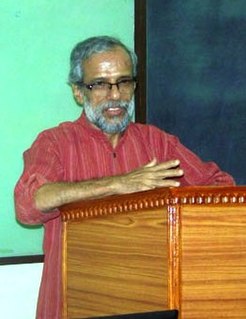 W
WRajan Gurukkal is a leading Indian social scientist, historian, professor and writer. He has written many books and articles on different topics. He has also received awards for his works.
 W
WRichard Hay is an Indian politician, representing Bharatiya Janata Party, and is a Member of Parliament from Kerala as a nominated member of the Lok Sabha, representing the Anglo-Indian community from 2015 to present.
 W
WBulu Imam is an environmental activist working for the protection of tribal culture and heritage in Jharkhand. On 12 June 2012, he received the Gandhi International Peace Award, 2011 at the House of Lords in London. He is recipient of the Padma Shri (2019). He is the grandson of Syed Hasan Imam, who was a leading Barrister and Judge of Calcutta High Court (1912–1916), and the President of the Indian National Congress.
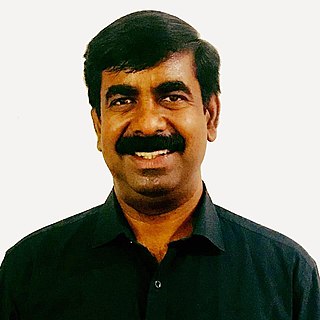 W
WKaruppannan Jaishankar is an Independent Indian criminologist. Earlier he taught at Raksha Shakti University. He is the editor in chief of International Journal of Cyber Criminology and the founding father of Cyber Criminology, an academic sub-discipline of Criminology.
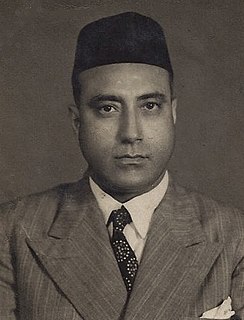 W
WRam Chandra Kak was the Prime Minister of Jammu and Kashmir during 1945–1947. He was also a pioneering archaeologist who excavated the major sites of antiquities in Kashmir Valley and wrote a definitive treatise on them.
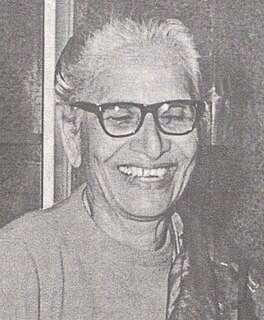 W
WIrawati Karve was an anthropologist, sociologist, educationist and writer from Maharashtra, India.
 W
WHaleyuru Srinivasa Krishnaswamy Iyengar was a Kannada columnist, essayist, novelist, critic and teacher of Economics and Commerce studies in Mysore. He is remembered for his character sketches and short essays on personalities and issues of national & international import, in his weekly column "Varada Vyakthi". These appeared in the Kannada magazine "Sudha" continuously for nearly two decades. His literary critique "Kannadadalli Vidambana Sahitya" won him the Kannada Sahitya Akademi Award in 1981. His perspective on elements of Vishistadvaita in the works of Kuvempu were brought forth in his book "Kuvempu Sahityadalli Vishistadvaita – Darshana". H. S. K. penned close to thousand character sketches over two decades. These were later published in four collected volumes. He received the "Rajyotsava Award" from Government of Karnataka in 1997. For his lifetime contribution to Journalism and Kannada literature, the University of Mysore conferred a doctorate degree on him in 2004.
 W
WAmitava Kumar is an Indian writer and journalist who is Professor of English on the Helen D. Lockwood Chair at Vassar College.
 W
WMichael Lobo is an Indian scientist, writer, and genealogist. He is the author of three self-published books on the Catholic community in Mangalore, India.
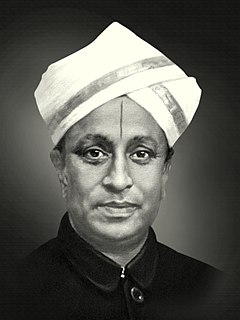 W
WMysore Hatti Krishna Iyengar was an Indian historian, archaeologist, epigraphist and authority in Indian numismatics. He pioneered the new field of Indology involving the study of Indian culture, history, music and traditions from a historical perspective. He is credited with the discovery of one of the oldest Kannada inscriptions, the Halmidi inscription, dating back to 350 A. D. He also discovered the remains of the city of Isila near Brahmagiri during his excavations at Chandravalli, Chitradurga. The forgotten tomb of Shahaji was traced by M. H. Krishna during his years at the Mysore Archaeological Department. His years at the Archaeology Department saw him churn out many of excavation reports and these were later published in successive volumes of Epigraphia Carnatica. During Krishna's tenure at Bangalore, he was instrumental in cataloguing close to 6000 coins in the archives of the archaeology department there. He was trained at the University College, London under Ernest Arthur Gardner. and would later accompany Sir Flinders Petrie in his excavations in Egypt.
 W
WTriloki Nath Madan, commonly, T. N. Madan, is an anthropologist, with a Ph.D from the Australian National University (1960). He is currently Professor Emeritus of Sociology at the Institute of Economic Growth, Delhi University, and Distinguished Senior Fellow (Adjunct), Centre for the Study of Developing Societies, Delhi. Of the teaching positions he held earlier, those at Lucknow and Dharwar lasted longest. He taught for short periods at several universities in India and abroad.
 W
WMakrand Mehta is a social and business historian from Gujarat, India.
 W
WJaswant Singh Neki was a leading Indian Sikh scholar, significant neo-metaphysical Punjabi language poet and former Director of PGI Chandigarh and Head of the Psychiatry Department at All India Institute of Medical Sciences (AIIMS), Delhi.
 W
WV. R. Panchamukhi, is an Indian Economist and Sanskrit scholar. He was born on September 17, 1936, in Dharwad, Karnataka. He is the eldest son of Vidyaratna Shri R. S. Panchamukhi, an archaeologist and indologist and Sanskrit Scholar.
 W
WYagnaswami Sundara Rajan or Y. S. Rajan is an Indian professor, scientist and administrator. He is Honorary Distinguished Professor in Indian Space Research Organisation. He has made major contributions to various aspects of management of Science, Technology and Innovation. In 2012, he was awarded with Padma Shri for his contribution in Science and Engineering. He is one of the well known scientists, who has closely worked with Abdul Kalam, former President of India.
 W
WJ. S. Rajput is an Indian educationist, writer and the former director of the National Council of Educational Research and Training. After his stint as a professor at the Regional Institute of Education, Bhopal during 1974–77, he served as the principal of the institution till 1988 when he was appointed as Joint Adviser on Education to the Ministry of Human Resource Development, a post he held till 1994. When the National Council for Teacher Education (NCTE) was established in 1994, he was made the founder chairman of the council where he served until his move in 1999 to the National Council of Educational Research and Training (NCERT) as its director. He superannuated from service in 2004 and during his tenure as the head of NCERT, it was reported that he brought in regulations in BEd education by distance education method and introduced a two-year BEd course.
 W
WSuzanna Arundhati Roy is an Indian author best known for her novel The God of Small Things (1997), which won the Man Booker Prize for Fiction in 1997 and became the best-selling book by a non-expatriate Indian author. She is also a political activist involved in human rights and environmental causes.
 W
WSondekoppa Srikanta Sastri was an Indian historian, Indologist, and polyglot. He authored about 12 books, over two hundred articles, several monographs and book reviews over four decades in English, Kannada, Telugu and Sanskrit. To his credit are such works as "Sources of Karnataka History", "Geopolitics of India & Greater India", "Bharatiya Samskruthi" and "Hoysala Vastushilpa". S. Srikanta Sastri was a polyglot well versed in fourteen languages spanning Greek, Latin, Pali, Prakrit, Sanskrit and German among others. He was Head of the Department of History & Indology at Maharaja College, University of Mysore between 1940 - 1960. He was conferred the Kannada Literary Academy award in 1970 and was subsequently honoured by Governor of Karnataka Mohanlal Sukhadia in 1973 during mythic society diamond jubilee function. A Festschrift was brought forth and presented to him during his felicitation function in 1973 titled "Srikanthika" with articles on History and Indology by distinguished scholars. His work on Indus Valley Civilization and town planning at Harappa and Mohenjodaro were published in successive articles and drew considerable attention. His Research articles on The Aryan Invasion theory, the date of Adi Sankaracharya, Oswald Spengler's view on Indian Culture, Jaina Epistemology, Proto-Vedic religion of Indus Valley Civilization and Evolution of the Gandabherunda insignia remain relevant today.
 W
WVenkataramaiah Seetharamaiah is a Kannada poet, writer, essayist, critic, editor and teacher who taught Kannada literature at University of Mysore between 1928 to 1955. He is a recipient of the Karnataka Sahitya Akademi Award (1973), Kendra Sahitya Akademi Award and a Honorary Doctorate from University of Mysore in 1976. He presided over the 36th Kannada Sahitya Sammelana at Kumta in 1954. He has authored about sixty works in Kannada with about eight anthologies of poems, thirty-six works of Kannada prose, ten translations from English to Kannada and ten biographical sketches written in English. This corpus of writing spans fifty years of his academic career and includes nearly every conceivable genre and style of writing prevalent in his time. He mainly embodied the Navodaya movement in Kannada literature in the 1950s and 1960s. V. Seetharamaiah was an Economist by education and was trained under the tutelage of N. S. Subba Rao at Maharaja College, Mysore. N. S. Subba Rao studied Economics along with J. M. Keynes at Cambridge University in the early 1920s under the eminent Economist Alfred Marshall.
 W
WMala Sen was a Bengali-Indian-British writer and human rights activist. As an activist, she was known for her civil rights activism and race relations work in London during the 1960s and 1970s, as part of the British Asian and British Black Panthers movements, and later her women's rights activism in India. As a writer, she was known for her book India's Bandit Queen: The True Story of Phoolan Devi, which led to the acclaimed 1994 film Bandit Queen. After researching the oppression of women in rural India, she also published Death by Fire in 2001.
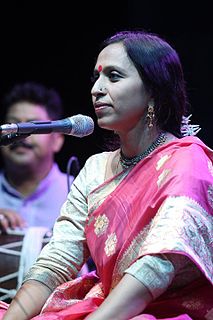 W
WVidya Shah is an Indian singer, musician, social activist and writer.
 W
WGiani Gurdit Singh was born in Mithewal village in the state of Punjab, India. He was considered one of the greatest contemporary writers in Punjabi and his book Mera Pind is regarded as a classic. It is now in its 14th edition and has been in print continuously since 1961. He was also a pioneering journalist, the Owner-Editor of Parkash 1947–1978. He was also the Editor of Singh Sabha Patrika a monthly magazine of Sikh history and divinity. Giani Gurdit Singh graduated as "Giani" from Punjab University, Lahore in 1945 and he specialised in literature, divinity, history and folklore. He was a member of the Punjab Legislative Council from 1956 to 1962. He contributed to the debates at that time and in the creation of Punjabi University, Patiala and in the recognition of Takht Sri Damdama Sahib, Talwandi Sabo, as the 5th Takht of the Sikhs. He was General Secretary of the Singh Sabha Shatabadi Committee, Amritsar, which was renamed Kendriya Sri Guru Singh Sabha. As the Editor of the magazine Singh Sabha Patrika he focused on issues of importance to the Sikhs. He also established two Guru Granth Vidya Kendras, one in Chandigarh and another in Mehrauli, Delhi.
 W
WSurajit Chandra Sinha was an Indian anthropologist born in Durgapur Upazila, of Netrokona District, in Mymensingh Division, then in Bengal and now in Bangladesh.
 W
WMysore Narasimhachar Srinivas (1916–1999) was an Indian sociologist and social anthropologist. He is mostly known for his work on caste and caste systems, Social stratification, Sanskritisation and Westernisation in southern India and the concept of 'Dominant Caste'.
 W
WKapila Vatsyayan was a leading scholar of Indian classical dance, art, architecture, and art history. She served as a member of parliament and bureaucrat in India, and also served as the founding director of the Indira Gandhi National Centre for the Arts.
 W
WTarun Vijay is an Indian author, social worker and journalist. He was the editor of the Rashtriya Swayamsevak Sangh (RSS) weekly in Hindi, Panchajanya, from 1986 to February 2008. He also writes for the Daily Pioneer.